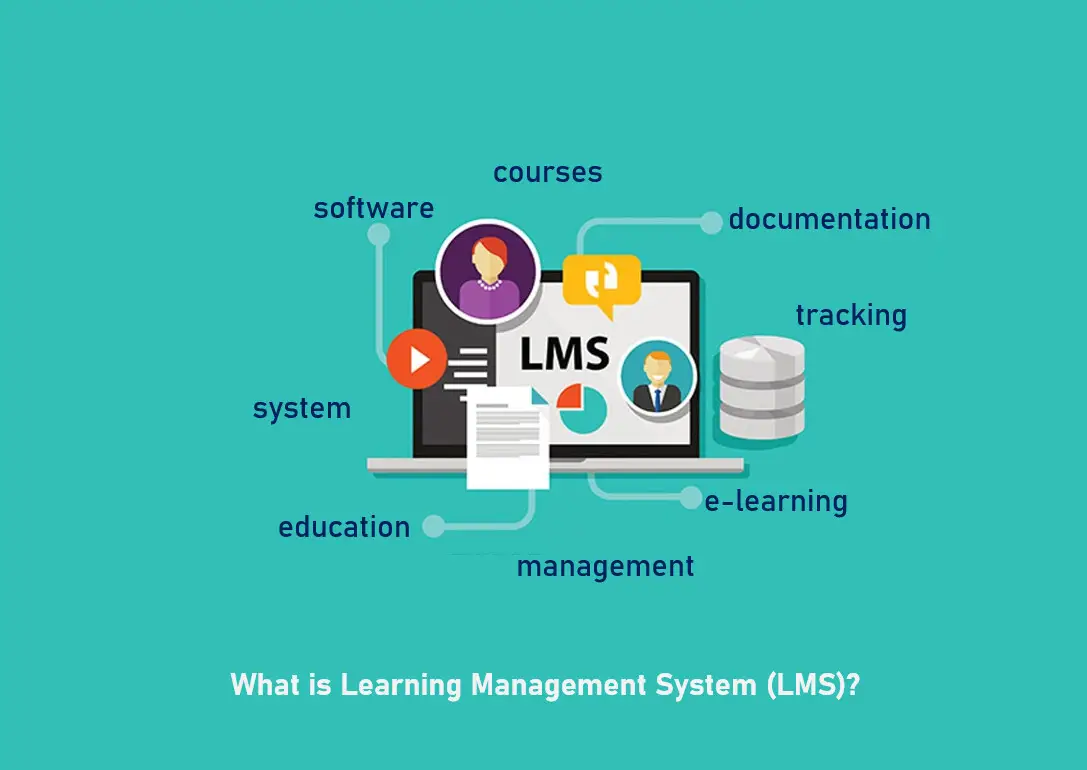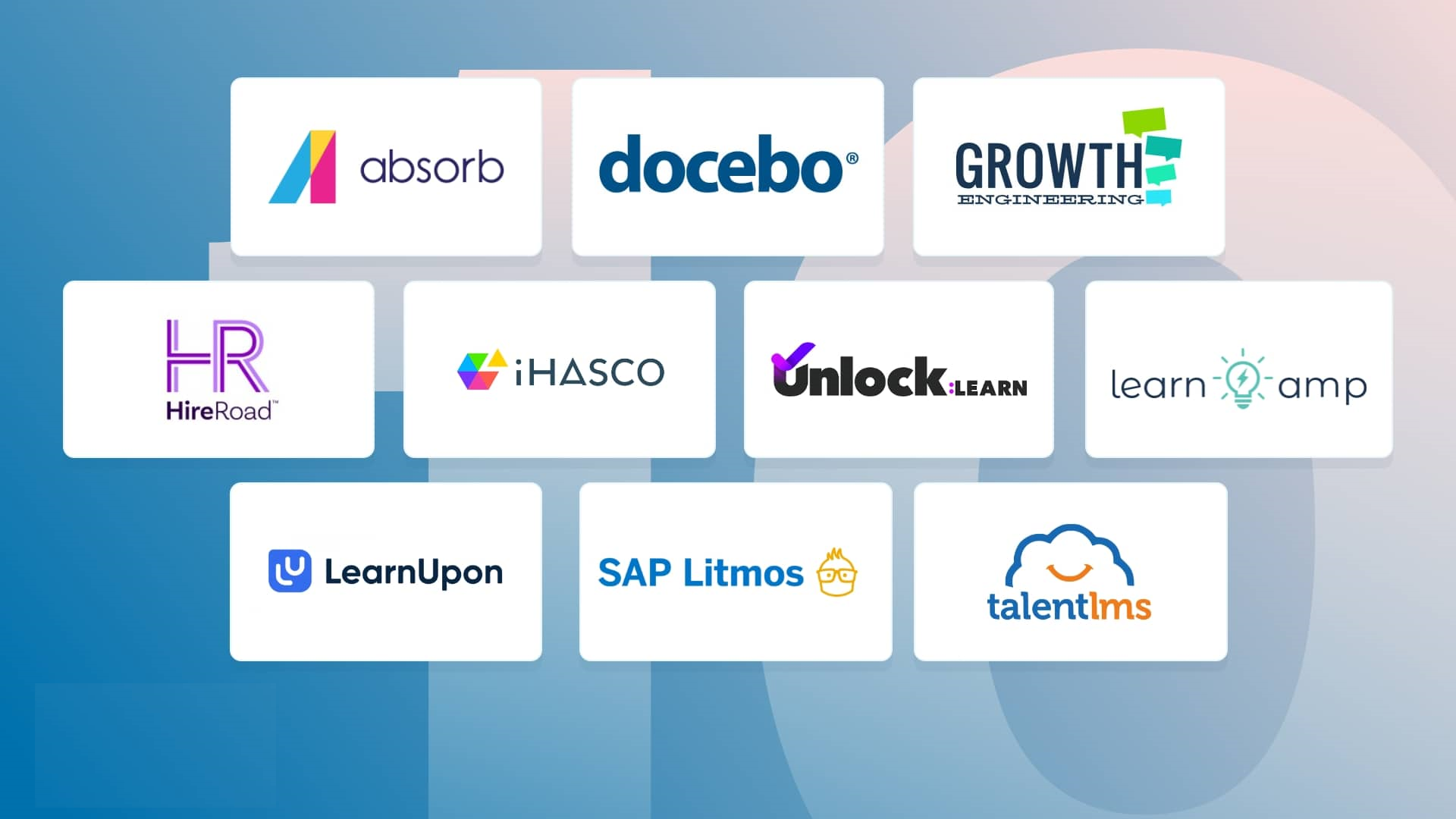
Adaptability and innovation are paramount to success, organizations are constantly seeking ways to enhance their workforce's capabilities. Learning Management Systems LMS Systems For Employee Traininghave emerged as transformative tools, empowering organizations to cultivate a culture of continuous learning and equip their employees with the knowledge and skills necessary to excel in their roles and contribute to the organization's overall growth.
Personalized learning paths can be tailored to individual employee needs, learning styles, and skill gaps, ensuring that training is relevant and effective. Additionally, LMS systems support engaging and interactive content delivery through multimedia formats, including videos, simulations, and gamified learning experiences, making training not only informative but also motivating and enjoyable. LMS platforms also provide comprehensive performance tracking and assessment tools, enabling organizations to measure employee progress, identify areas for improvement.
LMS Systems For Effective Employee Training
LMS platformsalso provide a wealth of features that facilitate effective training delivery. Interactive multimedia content, gamified elements, and social learning tools transform traditional training into an immersive and engaging experience. These interactive elements captivate learners' attention, boost retention, and foster a deeper understanding of the training material.
Enhancing training delivery, LMS systems streamline administrative tasks, saving time and resources for HR and training professionals. Automated enrollment, progress tracking, and performance assessments provide valuable insights into employee learning patterns and training effectiveness. These insights enable organizations to refine their training programs and optimize their training investments.
Benefits Of LMS Systems For Employee Training
Organizations are constantly seeking ways to enhance employee expertise and foster a culture of continuous learning. Learning Management Systems (LMS) have emerged as powerful tools for achieving these goals, providing a centralized platform for delivering targeted training programs, tracking individual progress, and assessing overall learning outcomes.
LMS systems offer a multitude of benefits for enhancing workplace expertise. They enable organizations to:
Support Continuous Learning And Upskilling
LMS systems can facilitate continuous learning and upskilling by providing access to ongoing training opportunities and resources. This continuous development approach ensures that employees remain up-to-date with the latest industry trends, technologies, and skills, enhancing their adaptability and value to the organization.
Facilitate Collaborative Learning And Knowledge Sharing
LMS platforms can promote collaborative learning by enabling employees to connect with peers, share insights, and engage in discussions related to training content. This collaborative approach fosters a sense of community and encourages the exchange of valuable knowledge and expertise.
Provide Access To A Vast Repository Of Learning Resources
LMS platforms can serve as a central repository for a wide range of learning resources, including e-learning modules, videos, simulations, and interactive exercises. This comprehensive library provides employees with convenient access to a wealth of learning materials, fostering a culture of self-directed learning.
Track Employee Progress And Measure Learning Outcomes
LMS systems provide comprehensive tracking and assessment tools that enable organizations to monitor individual employee progress and measure the overall effectiveness of training programs. This data-driven approach allows for continuous improvement and optimization of training initiatives.
Create And Deliver Personalized Learning Experiences
LMS platforms allow for the creation of customized training programs tailored to the specific needs and skill gaps of individual employees. This personalized approach ensures that training is relevant and engaging, maximizing its effectiveness in enhancing employee knowledge and skills.
A Comprehensive Guide To LMS Systems
Learning Management Systems (LMS) have emerged as powerful tools for organizations to effectively train, develop, and upskill their workforce, enabling them to adapt to evolving industry demands and achieve their strategic goals.
LMS systems provide a centralized platform for managing and delivering training content, offering a range of features that streamline the training process and enhance the learning experience for employees. These features include:
Cost-Effectiveness And Scalability
LMS systems offer a cost-effective solution for training and development, eliminating the need for costly in-person training sessions and travel expenses. They are also highly scalable, accommodating the training needs of a growing workforce.
Performance Management And Certification
LMS systems integrate with performance management systems, allowing organizations to align training initiatives with individual and organizational goals. They also facilitate the issuance of certifications and badges, recognizing employee achievements and promoting a culture of continuous learning.
Training Delivery And Tracking
LMS systems facilitate the delivery of training content to employees through personalized learning pathways, adapting to individual needs and skill levels. They also provide comprehensive tracking and reporting capabilities, enabling organizations to monitor employee progress, evaluate the effectiveness of training programs, and identify areas for improvement.
Content Creation And Management
LMS systems allow for the creation and management of a wide variety of training content, including e-learning modules, videos, interactive assessments, and gamified elements. This diversity of content caters to different learning styles and preferences, ensuring that employees are engaged and motivated to learn.
LMS Systems For Employee Training Tools
Here is a list of some of the most popular LMS systems for employee training, without pictures:
1. HireRoad Learn - HireRoad Learn is a cloud-based LMS that is designed for businesses that need to deliver training on new hire onboarding and employee engagement.
2. Growth Engineering The Academy LMS - Growth Engineering The Academy LMS is a cloud-based LMS that is designed for businesses that need to deliver training on growth mindset and social-emotional learning.
3. Absorb LMS - Absorb LMS is a cloud-based LMS that is known for its strong compliance training capabilities. It is a good choice for businesses that need to deliver training on a variety of compliance topics.
4. iSpring Learn - iSpring Learn is a cloud-based LMS that is designed for businesses that need a simple and easy-to-use LMS. It offers a variety of features for creating and delivering eLearning courses, as well as reporting and analytics.
5. 360Learning - 360Learning is a cloud-based LMS that is known for its gamification features. It offers a variety of game-based learning experiences that can help to improve employee engagement and training outcomes.
6. Adobe Learning Manager -Adobe Learning Manager is a cloud-based LMS that is part of Adobe's Creative Cloud suite. It is a good choice for businesses that need to create and deliver high-quality eLearning courses.
7. LearnUpon -LearnUpon is a cloud-based LMS that is known for its strong reporting and analytics capabilities. It also offers a variety of features for creating engaging and interactive training courses.
8. TalentLMS - TalentLMS is a cloud-based LMS that is designed for businesses of all sizes. It offers a variety of features, including course creation, management, and delivery, as well as gamification, reporting, and analytics.
9. SAP Litmos LMS - SAP Litmos LMS is another cloud-based LMS that is known for its user-friendly interface and its ability to support a variety of training modalities, including eLearning, blended learning, and social learning.
10. Docebo Learn LMS - Docebo Learn is a cloud-based LMSthat offers a wide range of features, including course creation, management, and delivery, as well as gamification, reporting, and analytics.
What Are Examples Of LMS In Training?
Learning Management Systems (LMS) are widely used in various training settings, from corporate training and professional development to educational institutions and academia. Here are some specific examples of how LMS are utilized in different training scenarios:
Corporate Training And Professional Development
- Compliance Training - LMS can ensure that employees are up-to-date on mandatory compliance training requirements, such as workplace safety, harassment prevention, and data privacy.
- Skills Training and Development - LMS can deliver a wide range of training courses, including technical skills, soft skills, and leadership development programs.
- Employee Onboarding - LMS can streamline the onboarding process for new hires by providing them with access to essential training materials, company policies, and procedures.
Educational Institutions And Academia
- Personalized Learning -LMS can support personalized learning paths by adapting to individual student needs and preferences, tailoring content and pacing accordingly.
- Blended Learning -LMS can integrate with traditional classroom instruction, providing students with access to online resources, assignments, and assessments.
- Online Course Delivery -LMS provide a platform for educators to create, manage, and deliver online courses, offering flexibility and accessibility for learners.
Governments And Non-Profit Organizations
- Community Education and Training -LMS can facilitate access to education and training programs for community members, promoting skills development, literacy, and career advancement.
- Healthcare Training - LMS can deliver training for healthcare professionals, such as nurses, doctors, and technicians, covering topics like patient care, medical procedures, and regulatory compliance.
- Public Safety Training - LMS can provide training for law enforcement, firefighters, and emergency responders, ensuring they are equipped with the latest knowledge and skills.
These examples illustrate the versatility of LMS in supporting various training needs and educational goals. LMS have become an essential tool for organizations across different sectors, enabling effective knowledge transfer, skill development, and performance improvement.
How To Use LMS Systems For Employee Training Platform?
Learning Management Systems (LMS) have become an integral part of employee training programs, providing a centralized platform for managing and delivering training content.
Effectively utilizing an LMS can significantly enhance employee development, improve knowledge retention, and boost overall organizational performance. Here's a step-by-step guide on how to use LMS systems for employee training:
- Adapt and Improve -Continuously adapt the training program based on feedback, performance data, and evolving organizational needs. Regularly update content, incorporate new technologies, and refine the training approach to ensure it remains relevant and effective.
- Monitor and Evaluate Results -Regularly monitor employee participation, progress, and engagement. Utilize the LMS's reporting tools to evaluate the effectiveness of the training program and identify areas for improvement.
- Provide Ongoing Support -Offer ongoing support and guidance to employees throughout the training process. Address their questions, provide feedback, and encourage peer-to-peer learning.
- Utilize Gamification and Incentives -Incorporate gamification elements into the training program to motivate employees and enhance engagement. Consider using points, badges, and leaderboards to reward progress and achievements.
- Implement a Blended Learning Approach -Integrate the LMS with traditional classroom instruction or virtual instructor-led training (VILT) to create a blended learning experience. This approach combines the benefits of self-paced online learning with the guidance and interaction of live instruction.
- Create Personalized Learning Paths - Utilize the LMS's personalization features to create customized learning paths for individual employees. Tailor the training content and pace to their specific needs and knowledge gaps.
- Design Engaging Training Content -Develop high-quality training content that is engaging, informative, and relevant to the target audience. Utilize a variety of multimedia elements, such as videos, interactive exercises, and gamification, to make learning more engaging and effective.
- Choose the Right LMS - Evaluate various LMS options based on your organization's size, budget, and specific requirements. Consider features like user-friendliness, scalability, content management capabilities, reporting tools, and integration with existing HR systems.
- Identify Target Audience - Clearly identify the target audience for the training program. Consider their roles, responsibilities, and skill levels to ensure the training content is tailored to their needs and learning styles.
- Set Clear Training Objectives - Before embarking on LMS implementation, clearly define the training goals and objectives. Determine the specific skills or knowledge you want employees to acquire and how they align with the organization's overall goals.
LMS Systems For Employee Training - FAQ's
What Is The Best LMS For Training?
The Best Learning Management Systems of 2023
- ispring - Best for Quick Support.
- Docebo- Best for Corporations.
- D2L Brightspace LMS- Best for Educators.
- Blackboard Learn LMS - Best for Higher Education Institutions.
- Canvas LMS - Best for Ivy League Schools.
- Moodle LMS- Best Open-Source Platform.
What Are Examples Of LMS In Training?
- 16 Best Learning Management System Examples.
- 360Learning.
- Skilljar.
- Blackboard Learn.
- Litmos.
- Rippling.
- iSpring Learn.
- SkyPrep.
What Is An LMS For Employee?
A learning management system (LMS) is a type of software that companies use to train and educate employees, clients, and business partners. Traditionally, work training programs would take place in person over a few hours or days. But LMS technology streamlines this learning process.
What Is LMS Training Platform?
A learning management system (LMS) is a software application for the administration, documentation, tracking, reporting, automation, and delivery of educational courses, training programs, materials or learning and development programs. The learning management system concept emerged directly from e-Learning.
Conclusion
In today's dynamic business landscape, where continuous learning and skill development are crucial for organizational success, Learning Management Systems (LMS) have emerged as transformative tools for fostering employee training and development. These comprehensive platforms provide a structured and centralized environment to manage, deliver, and track training initiatives, empowering organizations to equip their workforce with the knowledge and skills.
Integrating an LMS into an organization's training strategy can bring significant benefits for both employees and the company as a whole. By providing a structured, accessible, personalized, and engaging learning environment, LMS platforms empower employees to develop their skills, enhance their knowledge, and contribute to the organization's overall success.


